Israeli aggression against Iran failed on all fronts, while Iran emerged stronger: Analyst
By Maryam Qarehgozlou
The Israeli regime’s 12-day war of aggression against Iran failed to achieve any political or military objectives and did not break the Iranians’ resolve, despite extensive psychological warfare efforts and the US’s attempt to save face, says an analyst.
In an interview with the Press TV Website, Diego Sequera, a Venezuelan journalist and political analyst, asserted that Israel’s war against Iran has effectively dispelled any lingering illusions concerning the Zionist regime’s military efficacy.
In the early morning of June 13, the Israeli regime launched an unprovoked aggression against Iran, resulting in the assassination of high-ranking military commanders, nuclear scientists, and numerous ordinary civilians.
Subsequently, the Zionist regime intensified its aggression, unlawfully targeting military and nuclear sites as well as civilian infrastructure such as hospitals and residential buildings across the country, leading to more civilian casualties, including women and children.
Iranian armed forces, spearheaded by the Islamic Revolution Guards Corps (IRGC), launched an unprecedented retaliatory campaign known as Operation True Promise III.
This powerful counteroffensive lasted for 12 days and consisted of 22 waves, during which a multitude of advanced, previously unseen missiles were deployed.
Hundreds of ballistic missiles and drones were unleashed on the occupied Palestinian territories, successfully penetrating the much-hyped Israeli air defenses and striking key military, intelligence, industrial, energy, and R&D facilities across the occupied territories.
Facing heavy losses, the embattled Israeli regime desperately sought American intervention and on June 22, US forces carried out illegal strikes on three Iranian nuclear sites,
In response to the US B-2 bomber strikes on Iranian nuclear sites, the Iranian armed forces promptly targeted a US military base in Qatar.
Ultimately, isolated and abandoned, the Israeli regime announced a unilateral ceasefire through US President Donald Trump in the early hours of Tuesday.
According to Sequera, Israel couldn’t achieve a shock and awe, swift victory as they had aspired on the onset of their aggression against Iran.
“Iran was able to absorb a massive, painful blow within a decisive timespan; Israel lost the initiative once Iran recovered from that first moment, and it got worse once big sections of the infiltration scheme were thwarted and prevented complete aerial dominance. Then Israel started to feel the pain,” he stated.
“Then you got the stated objectives, be they the early formal ones -destroy the nuclear program- or once they were losing narrative momentum, the real, actual ones: regime change, the toppling of the government, and killing the Leader of the Islamic Revolution.”
Sequera said a week after the launch of the aggression, Israel was struggling to maintain its war effort and protect its vital infrastructure, like military, energy, and logistics systems, while Iran demonstrated restraint by not using its most advanced missiles.
“So, other than viciously hitting soft targets like civilian, residential areas, hospitals, basic services, and the media, all of them amounting to war crimes, Israel didn’t achieve any of their political or military, clearly stated objectives, not even with the late US saving face effort,” he said.
“Hell, they weren’t able to break the people’s will in spite of the attacks and massive psychological warfare efforts.”
Iran’s nuclear program won’t stop
Commenting on the unlawful US attacks on Iranian nuclear sites in Fordow, Natanz, and Isfahan, Sequiera affirmed that Iran’s nuclear program would remain unaffected.
“Ever since Trump bombastically announced the attacks, it sounded weak. Later development proved this,” he said.
It’s not hard to imagine that the political-military leadership didn’t foresee this scenario, among surely many others, especially regarding Fordow and how it was conceived as perhaps the most sensitive nuclear facility, he noted.
On the other hand, Sequera explained, Iran’s nuclear fuel cycle system has been strategically developed with security measures, contingency plans, and potentially other alternatives in place to ensure its continued operation, even in the face of significant aggression like the one carried out by the US.
While Trump claimed the “total obliteration” of Iran’s nuclear program in the aggression, a leaked preliminary assessment by the Pentagon’s Defense Intelligence Agency (DIA) found that the attacks caused only minimal damage to the three facilities.
The report also noted that Iran’s enriched uranium stockpile remains intact despite Trump claiming that the country’s nuclear program was finished.
“The recent events have opened up a range of new scenarios with various dangers, as evidenced by Trump’s current media meltdown and renewed Israeli threats,” he added.
However, Sequera pointed out, the US used 14 GBU-57 bunker buster bombs without successfully destroying Fordow, and assessments indicate that the US may only have six or fewer of these bombs in stock, which take a long time to manufacture, particularly given the current state of the US arms industry.
“So I think that it’s safe to say that even in the worst case scenario, a six-month delay, the nuclear program won’t stop, being a given that all the updates and defensive measures are taken,” he said.
‘Israel’s myth of military effectiveness shattered’
According to Sequera, one reason Israel initiated the aggression against Iran was to mitigate the reputational damage it was already experiencing due to its genocidal actions in Gaza, where more than 53,300 Palestinians have been killed since the onset of war on October 7, 2023.
“It was going mainstream and started to genuinely hurt, and it’s becoming even more scandalous with the latest brutal, dystopic killing fields,” he told Press TV Website.
“And also, you got Israeli Prime Minister Benjamin Netanyahu tying everything to his own political fate.”
This is not only damaging for Israel, he highlighted, but also for its allies, corporate media, multilateral bystanders, and Western governments who are not taking substantial steps to change course, but the optics of this situation are poor.
“In an attempt to address these issues, Israel sought a new destructive path [by attacking Iran], which ultimately worsened the situation by shattering the remaining perceptions of Israel’s safety, security, military effectiveness, and defense sustainability,” he said.
As stated by Daniel Levy, the former British-Israeli negotiator, Israel now appears weak and genocidal, making it more dangerous. The recent bombing in Nabatyeh, South Lebanon, should be viewed through this lens, Sequera added.
“It is hard to foresee, but Israeli society itself is in a bad place, and it got worse after this. Many entropic forces charging against themselves, a constitutional crisis has been postponed, many people fleeing, psychologically damaged after being on the other end of the almost two-year genocide, which many people support, to an important extent, you can see pretty bad symptoms going on.”
‘Western players are unreliable liars’
When asked about the effects of Israel’s recent aggression against Iran on future diplomatic talks between Iran and the US, Sequera highlighted the US’s unreliability and breach of international law.
He specifically mentioned the manipulation of the International Atomic Energy Agency (IAEA) and its director, Rafael Grossi, to further a Zionist agenda and encourage warfare.
“We’ve seen to what extent the US is totally unreliable, destroying each and every basic tenet that barely remained of international law," Sequera said.
“You got one of the most sensitive multilateral bodies, the IAEA, willfully weaponizing through his director, Grossi, to push the Zionist/Neocon/Thinktankland agenda and go to war siding with them."
He noted that the non-proliferation legal architecture has been destroyed, which reveals all Western players as "unreliable liars destroying whatever substance of the post-war architecture was still standing after Gaza."
And then you got Trump himself, he added.
This is also a war against multipolarity, multilateralism, a win-win dignified world with independent, interdependent sovereign countries, and it could be holding more ground after this, he explained.
Sequera said that despite the current uncertainty, there is potential for opportunity amid the chaos.
“Being as unpredictable as it is, something can come from this dangerous juncture. It could, it might, become an opportunity if we’re able to grasp it. It demands a lot of political imagination and audacity.”
To achieve this, Sequera asserted that siding with Iran, which has been at the forefront of the issue, is crucial.
“Resistance also is creation, and to create is to resist; resisting can take various forms depending on the context and capabilities of each country, and this is not an ideological discussion. This can only happen by siding with Iran, pushed to the forefront,” he remarked.
Indian author pulls out of Berlinale over jury’s ‘unconscionable’ refusal to comment on Gaza
Bangladesh Nationalist Party secures victory in general election
VIDEO | British High Court rules against ban on Palestine Action Group
Tehran urges ‘serious’ revision in EU ‘unconstructive’ approaches
Hamas slams Israeli settlers’ ‘criminal aggression’ in West Bank
VIDEO | Press TV's news headlines
VIDEO | Iran launches 'Holy Qur'an Does Not Burn' campaign to restore mosques damaged in unrest
VIDEO | Ramadan amid the rubble: Gaza’s historic Al-Zawiya market defies odds


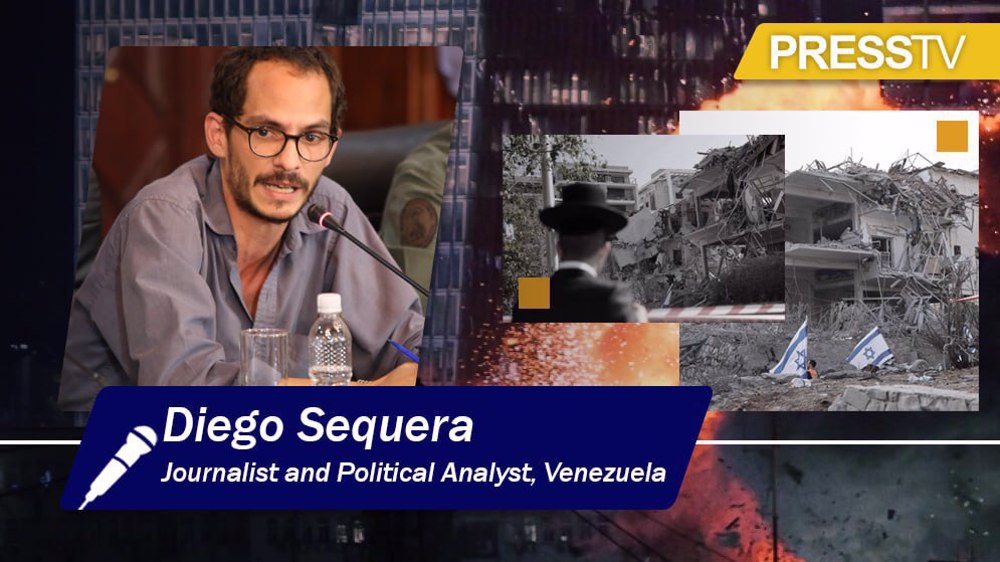
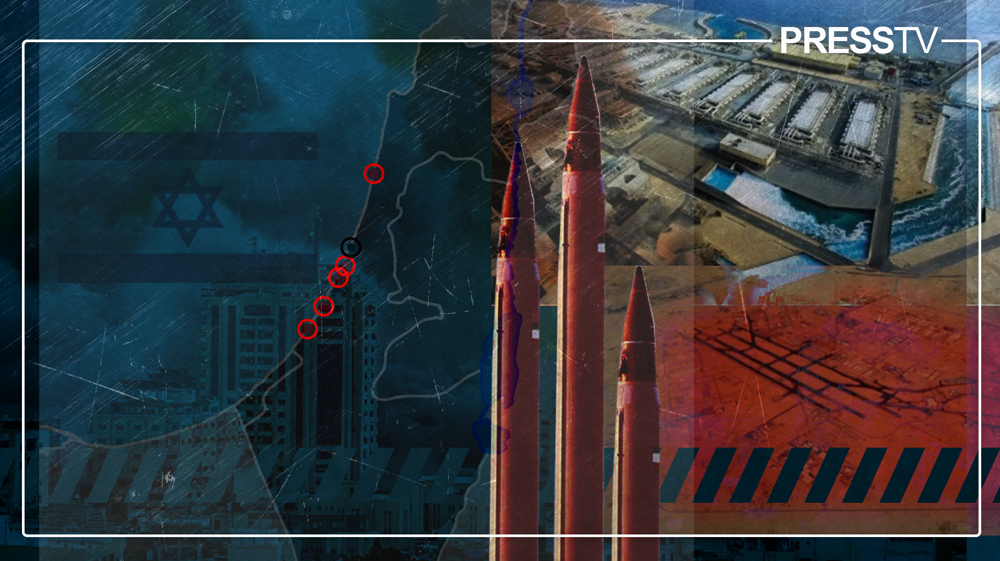
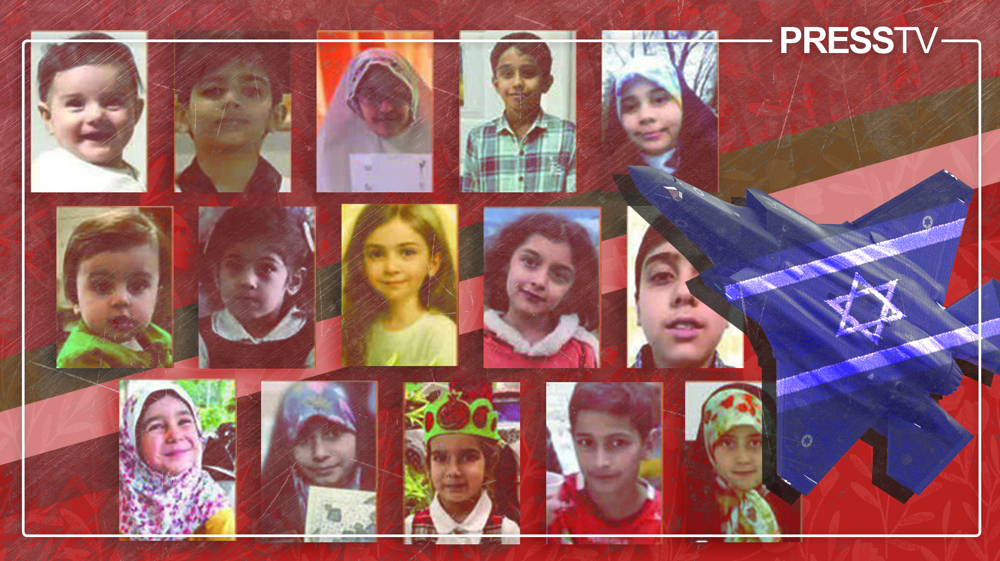
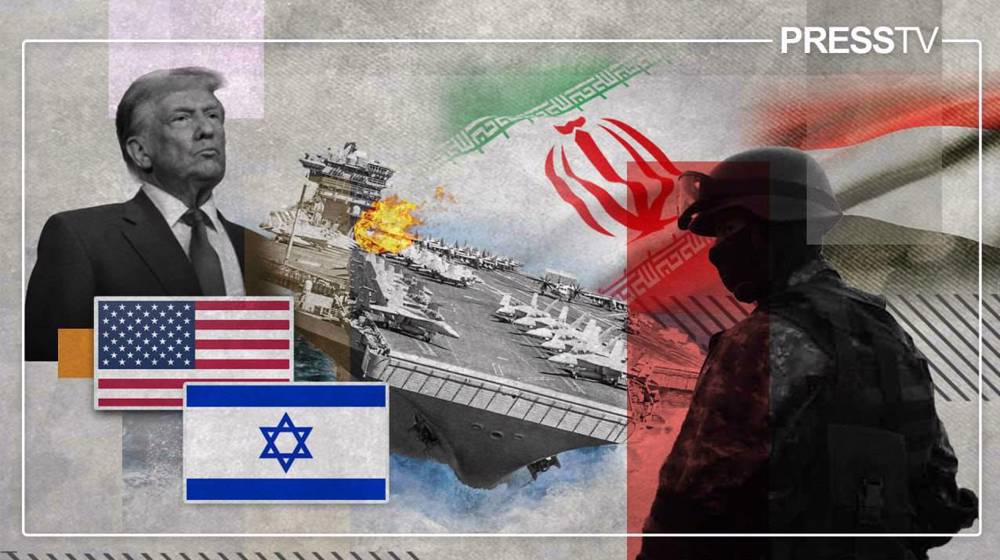
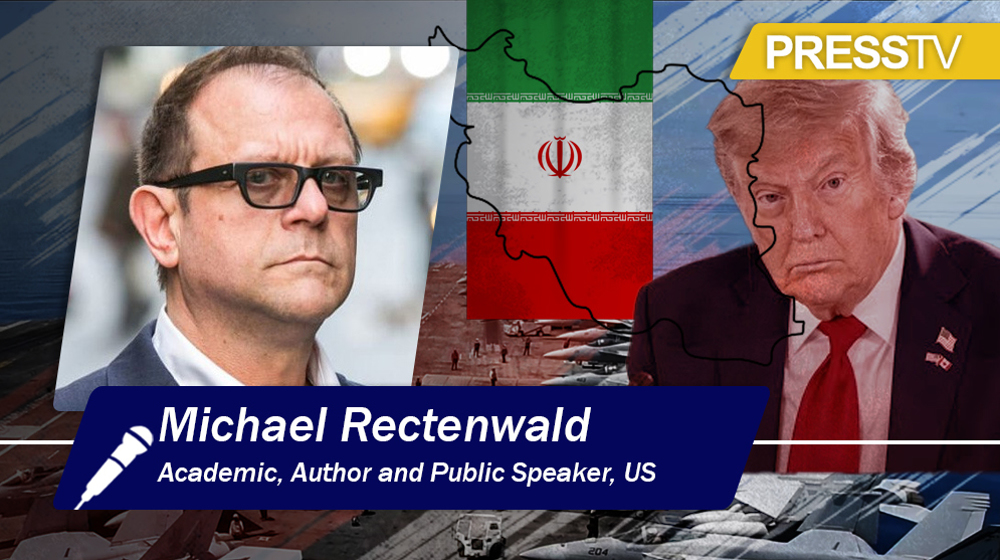
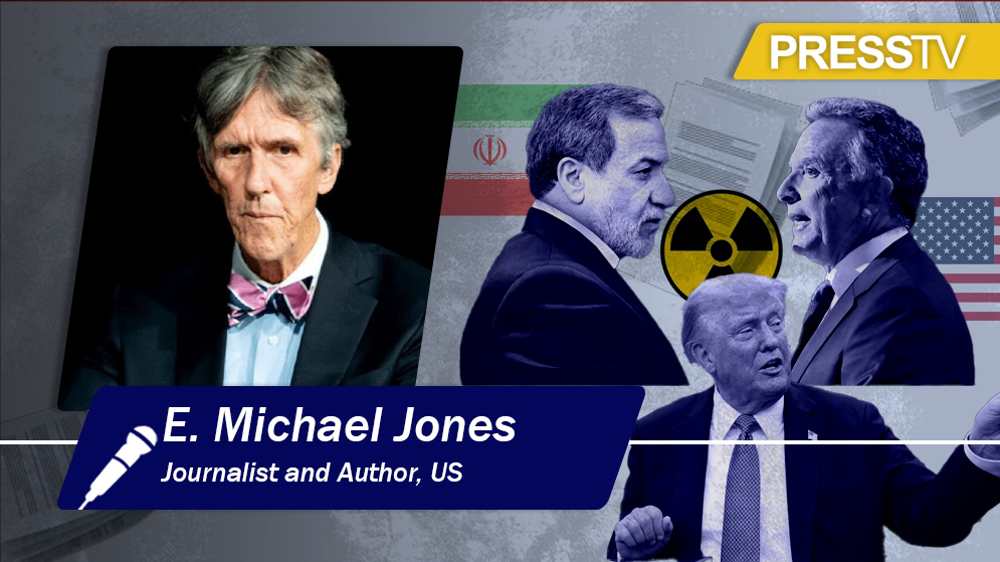
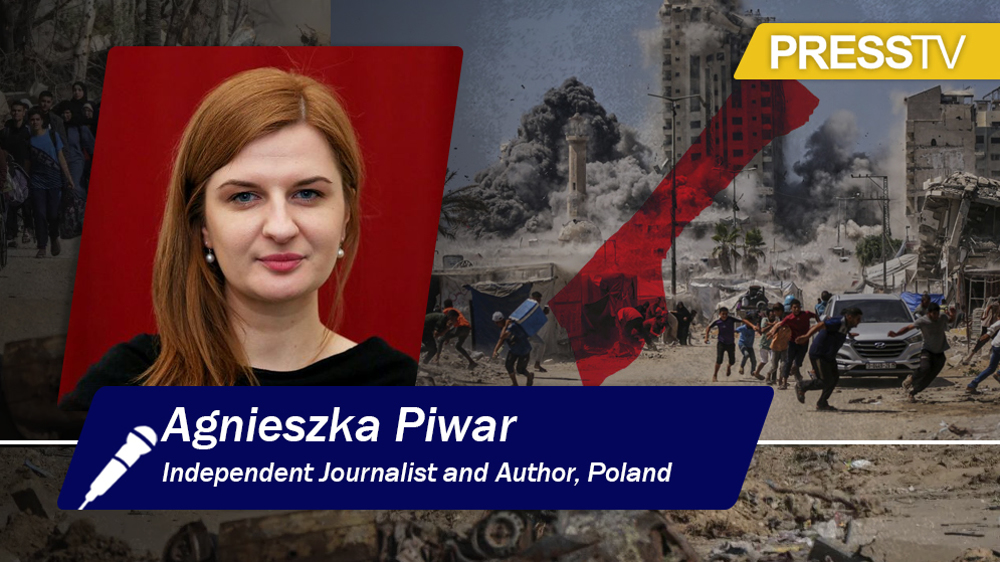



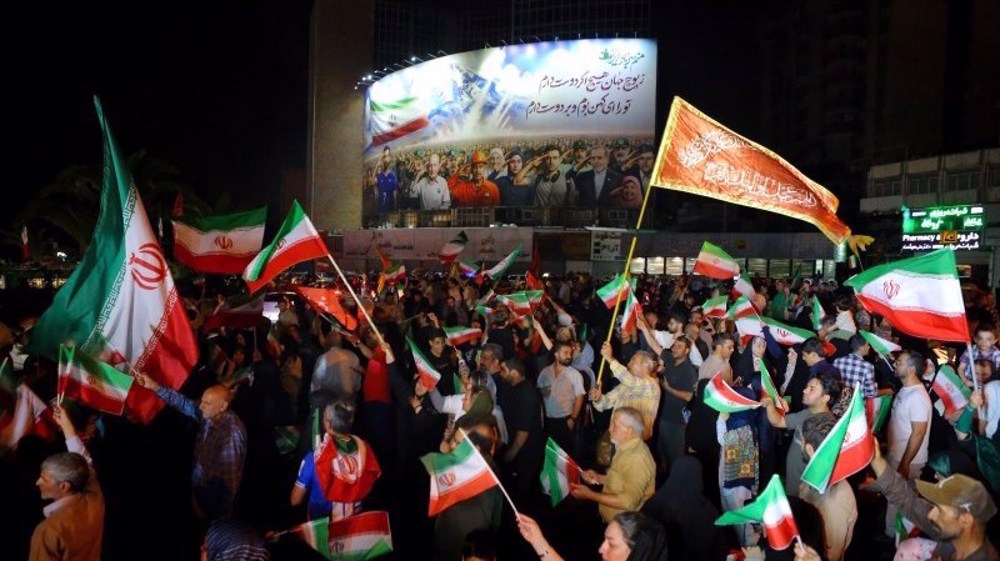
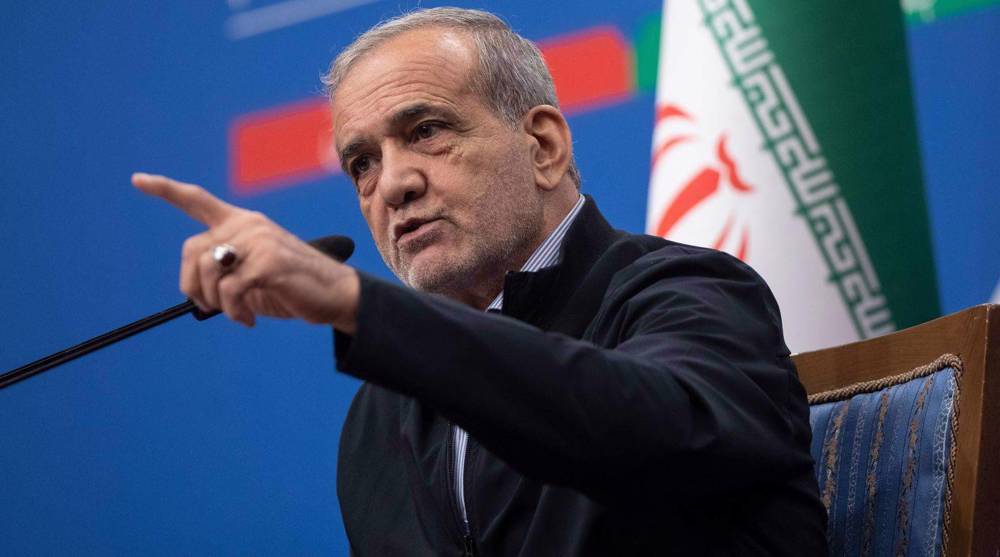
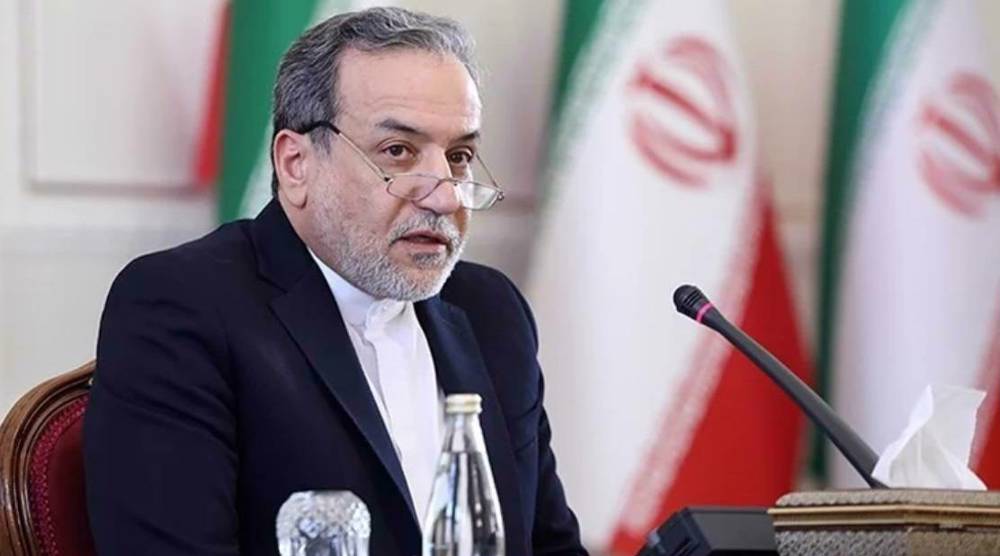


 This makes it easy to access the Press TV website
This makes it easy to access the Press TV website